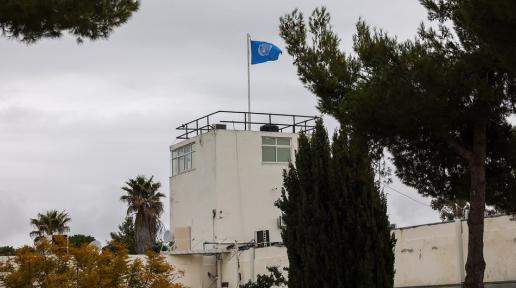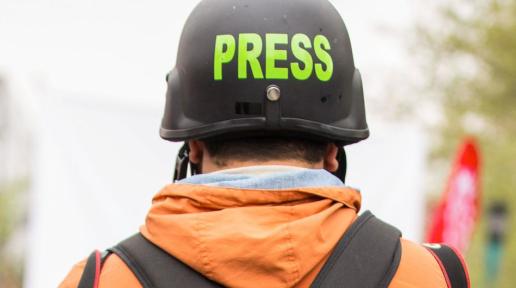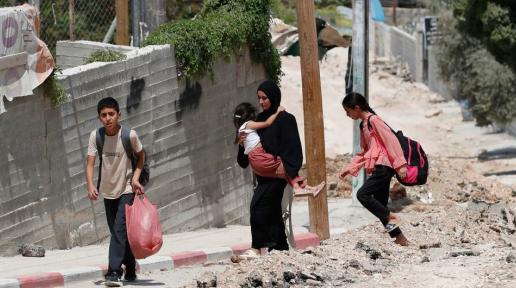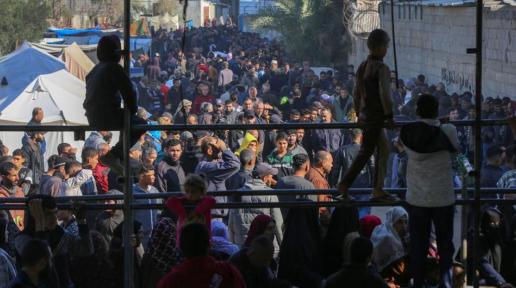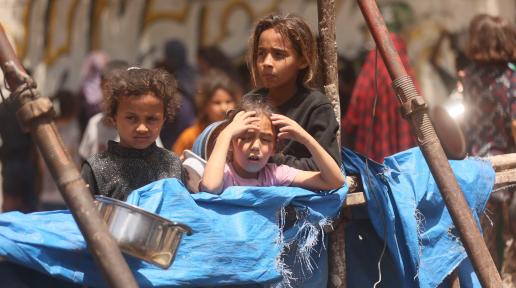Story
10 December 2025
Gaza’s babies ‘scarred by war before first breath’ by malnutrition
Mothers who’ve been left starving in Gaza are now giving birth to underweight or premature babies who die in intensive care units or struggle to survive as they endure acute malnutrition, the UN Children’s Fund (UNICEF) warned.Speaking from the shattered enclave, UNICEF Communication Manager Tess Ingram said that at least 165 children are reported to have died “painful, preventable deaths” related to malnutrition during the war between Hamas fighters and Israel.A lesser-known scourge is acute hunger among pregnant and breastfeeding women and “the devastating domino effect” of this lack of a healthy diet on thousands of newborns.“In Gaza’s hospitals I have met several newborns who weighed less than one kilogramme, their tiny chests heaving with the effort of staying alive,” Ms. Ingram said.Born into dangerSpeaking to journalists in Geneva via video link, she explained that low birthweight infants are about 20 times more likely to die than infants of normal weight.The UNICEF spokesperson pointed out that before the war in 2022, an average of 250 babies per month, or about five per cent, were born weighing less than 2.5 kilograms at birth according to the Gaza Ministry of Health.In the first half of 2025, even with fewer births, that proportion rose to 10 per cent of all births, or about 300 babies per month, surging to 460 per month in the three months before the ceasefire.That amounts to 15 a day – almost double the pre-war average.“Low birthweight is generally caused by poor maternal nutrition, increased maternal stress and limited antenatal care,” Ms. Ingram explained.“In Gaza, we witness all three, and the response to them is not moving fast enough, nor at the scale required.”Reality of warThe UNICEF spokesperson added that in October alone, 8,300 pregnant and breastfeeding women were admitted for treatment for acute malnutrition, “in a place where there was no discernible malnutrition among this group before October 2023”.“This pattern is a grave warning and it will likely result in low birthweight babies being born in the Gaza Strip for months to come,” she said, adding, “This is not over.”The UN has responded to this dire situation by replacing incubators, ventilators and other life-saving equipment destroyed in the conflict.UNICEF has also provided supplements to tens of thousands of pregnant and breastfeeding women to prevent malnutrition, screening young children for acute malnutrition and enrolling them in treatment.But to improve the response, more aid urgently needs to enter the Gaza Strip.The UN Office for the Coordination of Humanitarian Affairs (OCHA) said on Monday that “persistent impediments” to reach the most vulnerable with aid include insecurity, customs clearance challenges, delays and denials of cargo at the crossings. Aid teams also highlight that limited routes are provided for transporting humanitarian supplies within the Strip.Rafah callOpening the Rafah crossing in southern Gaza could help to increase the flow of humanitarian trucks and bring down the numbers of children with malnutrition, UNICEF’s Ms. Ingram explained.“We really need to see all types of aid come in, particularly nutritious food through commercial routes as well,” she added, stressing that local markets need to be restocked with more commercial goods so that prices can drop and items such as fruit and vegetables, meat and dairy, can become affordable for families.The UNICEF spokesperson insisted that the two-month-old ceasefire “should offer families safety, not more loss”, recalling that more than 70 children have been killed since it began on 10 October.“Generations of families, including those being born now into this ceasefire, have been forever altered by what was inflicted upon them,” Ms. Ingram said, stressing that she sees and hears the generational impacts of the conflict on mothers and infants “almost every day in hospitals, in nutrition clinics, in family tents”.“It is less visible than the blood and injury, but it is ubiquitous,” she said.Ms. Ingram insisted that the “domino effect from mother to child” – the impact of malnutrition, stress and displacement on pregnant women and their babies – should have and could have been prevented.“No child should be scarred by war before they have taken their first breath,” she said, pointing to the “brutal reality” of the conflict and the “Israeli aid restrictions, which depleted hospitals and starved and stressed mothers.” “So much suffering could have been prevented if international humanitarian law had been respected,” she concluded.


